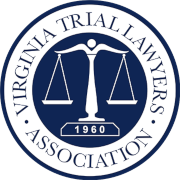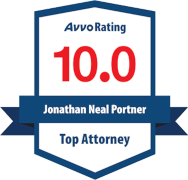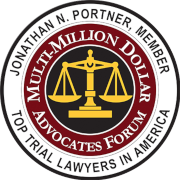
-
Does an Insurance Company Use Video Surveillance in Automobile Accident Cases in Maryland and Virginia?
Absolutely. In serious accident cases, you need to be aware of the fact that if you are claiming a permanent injury the insurance carrier becomes more concerned about its exposure. If the adjuster has received medical reports where you claim such a disability the adjuster may hire an investigator to follow you and video your activities. This is often done on the day you have a scheduled doctors appointment with the insurance company's doctor for an evaluation. Amazingly, Maryland and Virginia personal injury lawyers will inform their client of the questions the doctor for the insurance carrier may ask, yet forget to tell them their activities for the day may be video. This certainly is a home run for an insurance carrier when a client is shown raking leaves on the same day she told the doctor she was basically confined to her bed (this happened to a well-known Baltimore accident attorney).
Many insurance companies, like the Hartford, are known to conduct video surveillance in injury cases where permanency is claimed once a lawsuit if filed.
I inform all of the injury clients I meet in my Columbia, Maryland office, and tell all of the accident lawyers who work for the law firm in Maryland and Virginia, to instruct all accident clients, with respect to video surveillance in this fashion:
• If you are not claiming a permanent injury odds are there will be no video surveillance
• If the insurance policy for the defendant driver is 25,000 or less video surveillance is not likely
• If you are seeking large permanent damage and are claiming you can no longer work, walk, drive, enjoy leisure activities or working outdoors, beware of video surveillance
• If you have a scheduled deposition or any meeting with a doctor for the defendant, expect video surveillance -
How Long Should I Treat for an Automobile Accident?
The answer is until your doctor determines that you are better. Persons who stop treating prematurely for personal injuries and then decide later that they want to treat again often have problems being compensated for additional damages. Insurance Companies are skeptical about paying the tab for accident victims who have stopped treating for a period of weeks. If the doctor informs you at some juncture that there is nothing more he can do for you, you might obtain a permanent disability rating. You then can be compensated for a permanent disability even though you are no longer treating.
-
How Much Should My Auto Accident Lawyer's Fee Be?
Most Maryland auto accident injury attorneys are paid through contingency fees. A contingency fee basically means that the client does not pay anything to the attorney unless there is a settlement with the insurance company or judgment from the court. When there is a settlement or judgment an attorney is typically entitled to a percentage of that total settlement or judgment amount. When an injured person is considering hiring a lawyer, he or she should read the fee agreement very carefully. Before signing the fee agreement be sure to check what percentage of the settlement the attorney is charging as a fee.
Some attorneys will charge fees that are too high. If the Maryland auto accident attorney's fee agreement includes a fee of more than 33% for a case that settles that Maryland accident injury lawyer is a rip off artist. Most Maryland accident injury cases settle and a fair Maryland auto accident attorney, like the lawyers at Portner & Shure, charge a 33% fee for a case that settles.
Usually, a fee agreement will have a different fee for a case that goes into litigation. When a case goes into litigation that means that the case did not settle because of a disputed issue. Common issues insurance companies dispute are low property damage, liability, and reasonableness of medical treatment. A case that is put into litigation will be decided by a judge or jury. Litigation requires much more work including pleadings, discovery, trial preparation, travel, and trial. The additional work often increases the attorney fee to 40% of the total judgment. If your Maryland accident lawyer is charging you more than a 40% fee for a case in litigation or more than a 33% fee for a case that settles, that attorney is ripping you off. The Maryland accident attorneys at Portner & Shure are both fair and experienced. If you or someone you know has been injured in an automobile accident contact the Maryland accident attorneys at Portner & Shure. -
I Want to Switch Injury Lawyers, Can I Fire My Current Attorney?
Yes, you can. Portner & Shure receives countless phone calls from people who want to leave their current attorneys throughout Maryland and Virginia.
The reasons for leaving usually are:
• I can't reach my injury lawyer (poor communication)
• The law firm does not have staff who speak my language. Portner & Shure has three Chinese speaking paralegals on staff; one Vietnamese speaking paralegal; four people who speak Spanish, including two paralegals; and a Korean speaking automobile accident paralegal, who has a Korean speaking assistant. Often we've seen personal injury law firms rush to meet Spanish speaking automobile accident clients in Maryland and Virginia. In fact, one firm in Howard County, Maryland, does this frequently yet has no interpreters on staff.
• The law firm seems inexperienced. Portner & Shure works on just personal injury and criminal defense work and settles or obtains approximately $10,000,000, in verdicts or settlements each year.
Specific questions with respect to firing a lawyer are:
• If I fire my lawyer and I have agreed to pay the attorney a contingent fee, do I owe him money?
• If I fire my lawyer can the lawyer keep my file until I pay my bill?
The contingent fee agreement you signed with the attorney limits the amount in most cases that you pay an attorney to one-third. So the new attorney and former attorney will work out the percentage of the one-third they each can receive. Often, if you are leaving the former firm for just cause, (poor communication or a bad job) the new injury firm does not have to give the former firm a dime. The fight between the two firms never involves the client, so if you are unhappy with your current injury law firm for reasons that include inexperience or poor communication you may consider switching.
While the former personal injury firm may ask for its out-of-pocket expenses, it may not withhold sending your file. In fact, one injury firm in Herndon, Virginia, had to be reminded of this fact recently. After when we cited the law, the file for our Korean speaking Virginia accident client was immediately obtained. -
If someone is using a cell phone and causes an accident can my attorney use that fact in court?
Statistics reflect that at any one time, more than 800,000 vehicles are being driven by someone using a hand-held cell phone. Studies also show that talking on a cell phone causes almost 25% of car accidents and texting while driving is approximately 6 times more likely to result in an automobile accident than driving while intoxicated. This is a shocking number, considering that 84% of cell phone users believe that using a cell phone while driving increases the risk of being in an accident. This is a classic case of "do as I say and not as I do."
With so many accidents being related to cell phone use, the last decade has seen this issue become a much more important component of litigation. Both plaintiff and defense attorneys routinely ask questions regarding a party's cell phone use in both interrogatories and depositions. The perception among attorneys is that if a party was using a phone at the time of the accident, that itself rises to the level of negligence. This determination can either force settlement, or re-enforce an insurance company's refusal to pay a personal injury claim, not based on the way in which an accident happened, but just by the mere fact that a plaintiff or defendant was on the phone. In the same way that defense attorneys have difficulty representing a client that was drunk at the time of the accident, they are very reluctant to let a jury or judge know that their client was on the phone.
In any personal injury action, an important question for a plaintiff's attorney is to determine is what sources of liability and payment are available. For instance, if a defendant gets into an accident while they are working, a claim is not only made against the driver but again, that driver's employer as well. This has been taken further. In some cases, restaurants and bars that have served alcohol to patrons that they knew would be driving have been held liable for the injuries that they cause, or employers that sponsor and serve alcohol at happy hours or other work functions may also find themselves "on the hook" for the negligence of their employees.
This same analysis could apply to cell phone use as well. Many employees text, e-mail, and/or talk on the phone regarding work-related issues long after their business hours have ended. While the business day is over, if an employee is doing work for the benefit of an employer, a strong case for vicarious liability or the existence of an agency relationship could be made. This argument is persuasive whether or not the employer actually knows that the employee is texting, e-mailing, and/ or talking on their behalf while driving.
The impact that cell phone use can have on the value of a personal injury case is enormous. Decisions regarding both liability and the best sources to pay for injuries caused by a defendant can be dramatically affected based upon the cell phone records of a plaintiff or defendant. As a result, a Plaintiff's attorney should now ask about the possibility of cell phone use by the defendant at the initial attorney/client interview. Further, in litigation interrogatories, document requests, and deposition questions, should be directed at this issue. -
My Diagnosis Is Soft Tissue or Whiplash. What Does That Mean?
Whiplash is an injury caused by the neck and head being thrown suddenly backward then forward upon impact. The impact forces the neck and head beyond their normal range of movement, causing soft tissue damage and pain. Whiplash may also happen in the reverse order with the head moving forward as the body moves backward. Whiplash is a term used most often to describe the symptoms resulting from an automobile accident.
A victim of car accident whiplash may experience one or all of these symptoms:
• Headaches
• Pain in the shoulders
• Sleep disturbance
• Fatigue
• Dizziness
• Vision problems
• Ringing in the ears (tinnitus)
• Poor concentration of memory
• Neck pain/stiffness
• Tight and/or sore muscles
• Tenderness of the muscles
• Lower back pain
• Loss of motion in the neck
• Pain between the shoulder blades
Even without these symptoms, it is a good idea to seek the advice of a medical provider in the event of a serious motor vehicle accident. There can be damage without symptoms, or there can be delayed problems. -
What Are Common Mistakes Made by Young Maryland and Virginia Drivers?
Maryland and Virginia teenage drivers are four times at greater risks for automobile accidents than older adults. Reasons include inexperience dealing with emergency situations, distracted driving and the desire to show off.
Below are some interesting findings and a further reason to have your teenager sign our Young Driver Contract:
BEING DISTRACTED
Cell phones, CDs, food, and text messaging, pose serious distractions to all drivers. Recent studies, however, with respect to teenage driving are revealing in this regard. First, one study done by State Farm Insurance reported 89% of teens noted they saw other teens driving and talking on their cell phones. Further, many have admitted during the same, and more than half said they observed their peers using iPods or text messaging while driving. Any form of distraction increases the likelihood of a Maryland or Virginia car accident. In fact, a recent study of drivers in the Maryland and Virginia area concluded that distracted driving contributed to 80% of all collisions.
TAKING RISKS
Risks include ignoring traffic signals, or school zone signs and changing lanes without checking blind spots. Teenage brains are predisposed to more risk-taking. Recent studies have revealed that when confronted with risky choices, teenage brains exhibit twice as much activity in the impulse area. SPEEDING Recent studies reveal that teenagers in the Maryland and Virginia area drive faster than all other drivers in the area as a whole. Speeding is the cause of one-third of the fatal motor vehicle accidents in the Maryland and Virginia area. This total is 50% more than the total for crashes for those 20 to 40 years old.
OVERCROWDING THE CAR
A crowded car for a teenager results in more aggressive driving. An NIH study found that when accompanied by male passengers in the front seat, teens of both genders speed more and leave shorter following distances. The same trend exists for teenage girls driving with other girls. Worse yet, another study found that with two passengers Maryland and Virginia 16-year-old drivers were at nearly twice the risk of having a fatal accident, and with three or more passengers the risk was nearly triple.
DRIVING UNDER THE INFLUENCE
Recent studies reveal that approximately 40% of Maryland and Virginia high school seniors have drank alcohol in the last month. More problematic, however, is because teens take more chances after drinking, more than half of those in fatal accident was found to have not been wearing seatbelts.
FOLLOWING TOO CLOSELY/DRIVING UNBUCKLED
At 60 mph a typical car needs between 120 and 140 feet to stop. In fact, 60 mph translates to 88 feet per second. A recent study of teen drivers revealed that teenagers left less following distance behind the car ahead than other drivers. Worse, another study by NHTSA reported that approximately one-quarter of drivers 16 to 24 do not wear seatbelts.
INABILITY TO HANDLE EMERGENCIES/DRIVING DROWSY
Knowing how to avoid an accident comes with driving experience. Young drivers make mistakes because they don't know how to apply the brakes correctly in certain situations, or are not aware of how to handle the car when it goes into a skid. Drowsiness affects the kids who burn the candle at both ends, also known as "overachievers". It is a known fact that sleep deprivation contributes to thousands of automobile accidents in Maryland and Virginia each year. -
What Can I Be Compensated for as a Result of an Automobile Accident?
You can be compensated for your property damage including a rental car and damage to your vehicle. Lost wages may be reviewed, as long as you file tax returns and have a slip from your doctor stating you are off work as a result of the automobile accident.
Additionally, you can expect to recover as damages all your medical bills that are reasonably related to the accident and be compensated for pain, suffering, inconvenience, physical impairment and disfigurement. Damages in this category can be broken down to include damages for emotional distress, pain while you were under active treatment, thereafter, and for any disability Compensation may also include damage to the family and spousal relationships. Importantly, in Maryland, Virginia, and DC personal injury damages may not be reduced by a defendant insurance carrier if you have been reimbursed for medical expenses and/or lost earnings from another source. Finally, these types of damages are not income within the meaning of federal and Maryland income tax laws, and therefore, you will not owe or have to pay any income taxes on the amount received as damages in an automobile accident case. -
What Do I Look For When Hiring an Automobile Accident Attorney in Maryland or Virginia?
If you asked me about how to go about selecting a personal injury lawyer ten years ago, my answer would have been completely different than it is today. With the advent of Google and other Internet search engines, I think this selection process is easy. Your search for the best injury lawyer should be result oriented.
First, look for an accident attorney who has obtained a few million dollar awards. The most successful injury attorneys in the United are members of the Million Dollar Advocates Forum. This means they have obtained at least one verdict for one million dollars or more. Since fewer than 1% of all United States accident lawyers have accomplished this feat, it's a great place to start. Jonathan Portner is a member of this group and has obtained more than one million dollar award.
Second, in addition to large case results, look at the volume of results the injury firm does each year. In other words, does it do at least five million dollars in accident awards or settlements each year? If the answer is yes, you can be sure the injury firm knows how to handle automobile insurance claims. Portner & Shure in fact accomplishes nearly double that bench mark number in injury awards each year, over nine million dollars.
Third, find out if the accident firm's prior injury clients were satisfied not just with the money, but also the service. Service is king in every business. While you may have obtained a good injury settlement, the process could have been long, or simply too time consuming. Our client testimonials reflect the high quality service. Our client testimonials show that, in addition to obtaining substantial injury damage awards, the law firm provides excellent service, and comes highly recommended.
Fourth, look closely at the firm and your specific needs. Does the firm actually litigate its own cases? Many injury firms do not go to court and send their automobile accident cases to Portner & Shure when it is time for a fight. Beginning and ending a case with the same law firm is much more time effective. Not only do we handle cases from the beginning through to trial if necessary, our attorneys have a proven track record against all major insurance carriers.
Next, individual service needs are all important. For example, if transportation is an issue will the lawyer come to you? Does the firm have offices near you? Over the last seventeen years, Richard Shure has done countless home consultations for accident victims who simply cannot come to one of our many offices.
Further, if language is an issue you must go to an injury firm that has paralegals on its staff who can help you immediately. Aware of the demographics of injured accident victims in Maryland, Virginia, and the District of Columbia, everyday, we have experienced paralegals and staff who speak Spanish (in fact five), Chinese (including Mandarin, Cantonese, Fujinese, and Shanghainese), Korean (both a paralegal and secretary), and Vietnamese.
Finally, while this may sound trivial, since poor communication (not steaming from language barriers, but attorney or paralegal availability) is a cause for lower awards, ask about the attorneys availability after hours. In the personal injury business the most successful law firms understand that sometimes its difficult for a client to connect with his or her attorney between nine to five, especially if the attorneys, like ours, go to court. As a result, we handle emergency issues and clients' concerns after hours. -
What Is the Maryland Boulevard Rule? How Does It Affect Motor Vehicle Collisions?
You may often hear insurance carriers refer to the "Boulevard Rule" when they investigate an automobile accident. However, what you may not know is what the Boulevard Rule really is.
The Maryland Boulevard Rule was adapted by a Maryland Court of Appeals in 1939 to expedite the flow of traffic on a favored highway thus allowing drivers on said highways to travel without stopping for each intersection. All drivers approaching a main street or highway have a duty or obligation to yield to the traffic on the major roadway. If the driver of a vehicle fails to yield to this rule then they were negligent as a matter of law. A claim for damaged property or bodily injuries could have been filed again the negligent party's insurance carrier.
Over the years the rule has evolved. In 1977, the Court of Appeals reduced the harshness of the application of the rule. It was found that the driver on the favored highway was negligent and his negligence was the proximate cause of the collision. Proximate cause is a legal term that means "an intervening cause which produces injury and without which the accident could not have happened, if the injury is one which might have reasonably anticipated or foreseen as a natural consequence of the wrongful act." In Covington v. Gernet, 280 Md.322, 373, A.2d 624 (1977), the Department of Motor Vehicles revised this rule and included the definition of "right of way" as "the right of one vehicle ...to proceed in a lawful manner on a highway of preference to another vehicle."
What all this means is that the Maryland Boulevard Rule no longer applies when favored drivers are driving in an unlawful manner on a main street or highway. If a favored driver is speeding, fails to yield to traffic control devices, or fails to stop, it is possible the favored driver may be found to be at fault for the accident. -
What Should I Do Immediately Following an Automobile Accident?
It is understandable that after an automobile accident you concern yourself with your car and your injuries, and not about how to protect your personal injury rights. Unfortunately, this path may lead you to jeopardize an injury claim. You should know there are a few things you should do, which take little effort, but in the end will serve to preserve your damage recovery.
First, after an automobile accident the police generally arrive. If they do not you must call them. Unless it is a necessity do not move your car until they arrive. When they arrive calm down and give them an accurate account of the accident. Then get the officer's name and report number, as well as the address and phone number of the insurance company for the other driver. Additionally, do not rely on the police to obtain accident witness information. You must, before leaving the accident scene, make sure you have the name, address and telephone number of all witnesses.
If you are injured in any way you should see your family doctor immediately or go to a hospital emergency room. Be aware that a common insurance company defense is claiming a person was not injured in the accident and did not suffer a personal injury because they waited several days to see a physician.
Next, call your own insurance company as soon as you get home. This is important since your own carrier may, depending on your policy, be responsible for a Personal Injury Protection claim. This insurance, assuming you purchased it, provides up to $2,500 for lost wages or medical expenses. Furthermore, in the event liability is later denied your carrier will be responsible, under your collision coverage, for your own property damage claim, which may also include towing and rental car expenses.
In Virginia automobile claims, Med-Pay is often available under your own policy to cover your medical expenses. Do not talk to any representative for the other driver including his or her insurance company. They may call to obtain a recorded statement or ask you to settle your accident and personal injury for a small damage amount. They are not calling to help you. Actually, that seemingly harmless statement is often used against people when the liability carrier raises defenses to deny the personal injury claim. Be aware that a common defense that actually arises from the statement alone includes "contributory negligence", you were somehow partially responsible for the automobile accident, that arises in all forms including but not limited to speeding and failure to pay proper attention. -
When I File a Lawsuit for a Personal Injury Will My Car Repairs Get Paid?
You are entitled to have your vehicle placed back into the same condition it was before the accident. If the other party is at fault their insurance will pay for the repairs. Our auto accident attorneys handle recovery for the property damage free of charge. There are cases where a vehicle is a total loss and the total loss figure may not reflect the true value of the vehicle. Using the appropriate guides, deducting where appropriate for excess mileage or damages, and adding certain accessories, your accident attorney and his or her experienced paralegals should be able to rectify this situation. If it cannot be resolved our Maryland and Virginia accident attorneys have forced the issue by litigating property damage disputes.
-
When Should I Notify My Own Insurance Company of a Possible Claim?
If you believe there is any chance that you may need your own carrier to defend, or pay something on the claim, you should notify the insurance carrier immediately. The law states that the duty to provide notice to the carrier arises when an accident is sufficiently serious to lead a person of ordinary intelligence....to believe that it might give rise to a claim for damages. State Farm vs. Walton, 244 Va 498 (1992).

WHAT CLIENTS HAVE TO SAY About us
-
“I had an accident in March of this year 2024, I called the lawyers at Portner & Shure and they took care of my case. I especially thank Audrey for her work, who helped me with the entire legal ...”
- Former Client -
“From day one, the phone call to this law firm was very attentive, and the handling of my motor vehicle case was executed completely. Michelle was my point of contact and handled my case with ...”
- M.W. -
“Grace Chung was very helpful and good at communicating. Always responded quickly and answered my questions clearly. My case was related to military medical facilities so it was kind of tricky but they ...”
- H.K.


WHY HIRE US?
EXPECT MORE WITH PORTNER & SHURE-
We offer legal representation in English, Spanish, Hindi, Korean, Vietnamese, & Chinese languages.
-
We have aggressive litigation tactics, skill, and passion.
-
We have offices in Maryland, Virginia & Washington, D.C.
-
Over 30 Years of Experience Serving Clients
-
We have received countless 5-star Google & Facebook reviews.
-
We have recovered over $400 million on behalf of our clients.

Awards & associations
-
Multi-Million Dollar Advocates Forum
-
The National Trial Lawyers Top 100
-
Super Lawyers
-
Best Attorneys of America
-
The National Trial Lawyers
-
Virginia Trial Lawyers Association
-
5-Star Google Reviews
-
Lead Counsel Rated
-
Maryland Association for Justice
-
10 Best Client Satisfaction Award 2016-2021
-
10 Best Client Satisfaction Award 2016-2021
-
American Association for Justice
-
Avvo Rating Top Attorney
-
Avvo Superb Rating Top Attorney
-
US News & World Report Best Law Firms 2019
-
Million Dollar Advocates Forum - Jonathan Portner




















